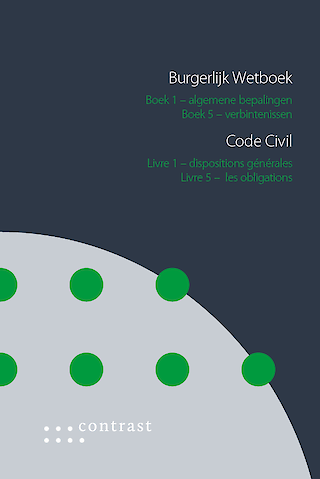In the Picture

Can the competition authority see what you write to your management and to your lawyer?
October 2024Imagine ...
"There are officials here at reception for an inspection," you hear one morning when the front desk calls you. You are legal counsel and rush to the reception to receive the officials. They identify themselves as officials of the European Commission and hand you an inspection mandate. This mandate mentions illegal price-fixing agreements that your company is alleged to have made with competitors over a number of products.
You can see the storm coming. Recently, you sought advice from your external lawyers on those practices and you have also discussed them internally with your management.
The inspectors get to work immediately. The external lawyers are called in and a crisis meeting with management ensues. One of the first questions is whether the inspectors can also copy the documents that pertain to or mention the price fixing.
A brief clarification.
Competition authorities have the right to seize documents relevant to the investigation during an inspection. This does not apply to documents enjoying Legal Professional Privilege (LPP), which guarantees professional secrecy of information exchanged between external lawyers and their clients.
At European level, LPP applies to the exchange of information between clients and all qualified lawyers within the European Economic Area (these are EU Member States, Iceland, Lichtenstein and Norway).
LPP applies to all communications between these lawyers and their clients. In other words, it covers not only activities related to the defence of clients, but also legal advice. It covers advice, letters, e-mails, personal notes from clients to their lawyers and notes from the lawyers themselves. Firms can thus seek legal advice from their external lawyers on the compatibility of certain practices with competition law with the confidence that such advice will not be seized by the competition authorities.
In some countries, such as Belgium, Greece, the Netherlands and Spain, advice from company lawyers are also protected to varying degrees. In Belgium, this is the case for internal advice by company lawyers to their employer (including internal correspondence, draft and final advice) and provided the company lawyer is a member of the Institute of company lawyers. If the advice is shared outside the company, the protection no longer applies.
As a company, how can you ensure that LPP is respected?
In principle, inspectors may check for themselves whether the documents collected are covered by LPP. If that is the case, they are not allowed to further examine or remove the documents. This underscores the importance of shadowing inspectors during an inspection so that they are not able to consult documents covered by LPP.
Discussions about whether a document is covered by LPP or not are usually resolved during the inspection. If not, the documents are kept separately in a sealed envelope for a confidentiality assessment at a later stage. The competition authority may take the sealed envelope to open it at its premises in the presence of representatives of the company. The authority may also ask the company to keep the sealed envelope in a safe place at the company, to continue its investigation at the company's premises during a new, announced visit.
Discussions about whether or not certain documents are covered by LPP can often be avoided by proactively indicating on the documents that they are documents protected by professional secrecy. One often sees the statement "privileged and confidential". Such a marking does not guarantee that the competition authority automatically agrees to the designation of the documents concerned as covered by LPP, but is particularly useful as a first (and often decisive) criterion for identifying relevant documents and excluding them from the investigation.
Concretely.
-
Documents covered by Legal Professional Privilege (LPP) may not be taken by the competition authority during an inspection or used in an investigation.
-
LPP is only partially harmonised in the EU: communications, in any form, between external lawyers and their clients in the context of the lawyers' professional activity enjoy professional secrecy. LLP may also apply to advice from company lawyers according to national legislation. In some Member States, LPP applies to internal correspondence and advice of company lawyers, in Belgium if they are a member of the Institute of company lawyers.
-
Discussions about LPP are generally resolved during the inspection. If this cannot be done during the inspection, ask for the document to be placed in a sealed envelope for a confidentiality assessment at a later stage.
-
As much as possible, also make it proactively clear that a document enjoys LPP. This is often the case for correspondence with external lawyers, but much less so for correspondence and advice of company lawyers.
Want to know more?
-
The European Commission's Explanatory Memorandum on Commission inspections, can be found here.
-
The Belgian Competition Authority's Guidelines on the search procedure, can be found here (in French and Dutch).
-
The Belgian Act of 1 March 2000 establishing the Institute of Company Lawyers, can be found here (in French and Dutch).
-
You can find the ECJ judgment, with the recent state of play on the scope of LPP, here.
-
Read our ITP on dawn raids, or contact our compliance team via compliance@contrast.law.
Please consult our website or contact one of our team members if you have questions or require more information:













